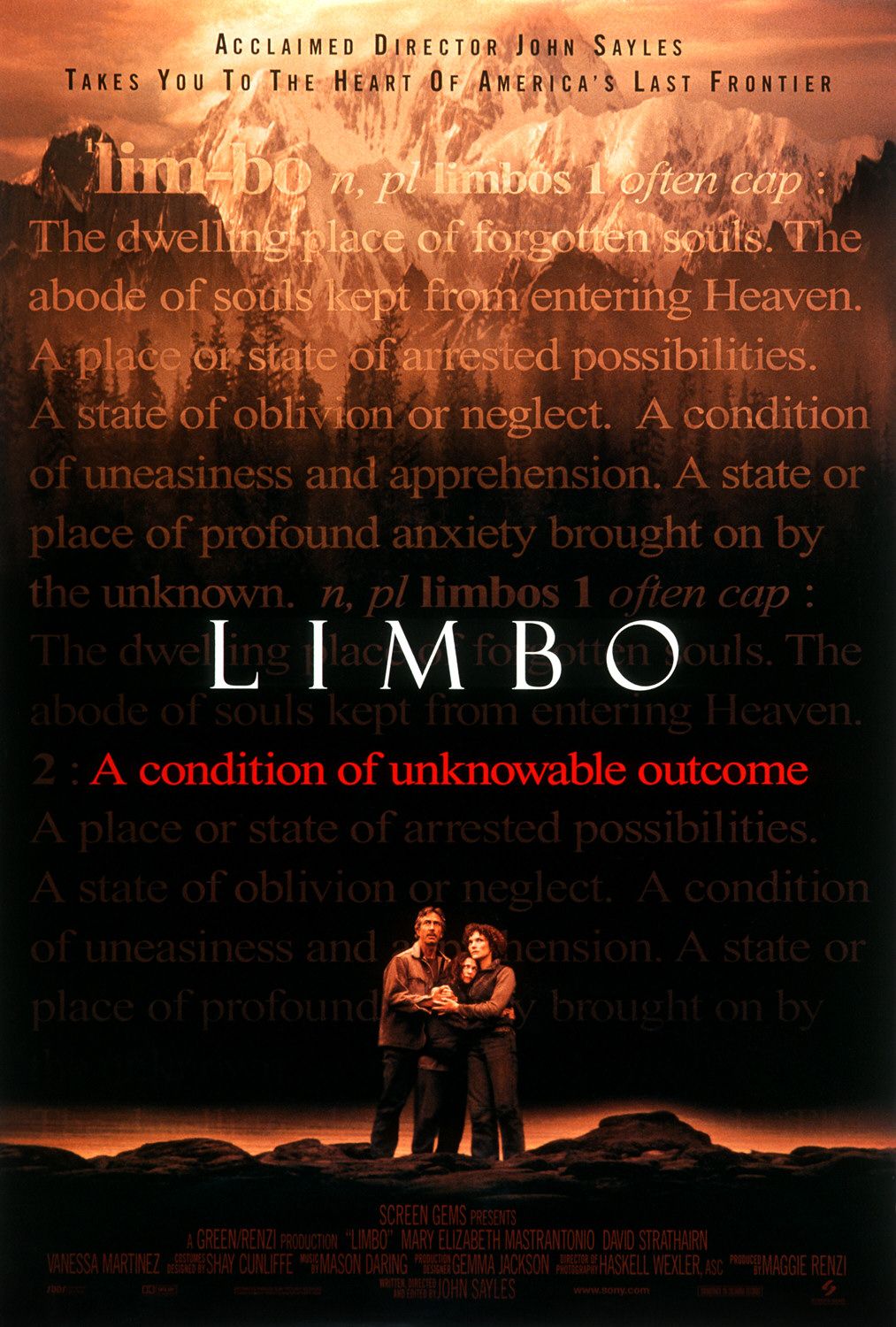CINEMATIC STATES: ALASKA
There's a scene in John Sayles' film LIMBO, in which the camera glides past a bunch of weather-beaten salmon-gutters at their local dive. They're relating the potted history of the state, where it's dark half the year, where snow is like grass, where people go to escape - it's like an entire state variation on the French Foreign Legion. They're not taking much cognizance of the fact that Kris Kristofferson is playing pool in the corner. In Sayles' Alaska, people are connected to the land, to the work of their hands, and less concerned with the kind of certainty and boundaries perhaps best represented by the straight lines of the Manhattan skyline. 'Limbo' means 'a condition of unknowable outcome', and the film certainly gives voice to that ambiguity, inviting the audience to consider what vast tundra might mean as a metaphor of the inner life. The tonal shift at the film's mid-point is unlike much else in US American cinema, and the dramatic axis turns at the moment when the three lead characters are forced to strip off wet clothes and hold each other to avoid freezing to death. Their condition of unknowable outcome compels them to the most intimate, vulnerable human action. A winking governor may have colonized the popular vision of Alaska as a place of paranoia and exclusion, but this is but a temporary meme. This state is massive enough to contain a range of 'real Americans' that both Sarah Palin and John Sayles could have invented. Jon Voigt, in RUNAWAY TRAIN, another Alaskan epic of the soul, finds ultimate liberation when exposed to its incomparable elements. He's alive and free, and (as with LIMBO) the film is content to leave the last part of his story unwritten. Alaska gives rise to conditions of unknowable outcome, it's a site of possibility, and it's a place where people sometimes have to take their masks off in order to survive.
Read more in CINEMATIC STATES, published this November - and available as an ebook now.
